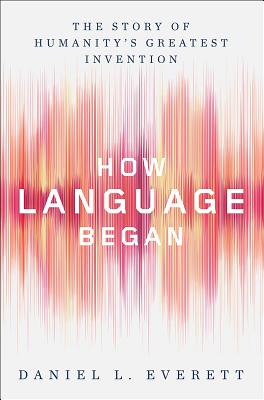
How Language Began:The Story of Humanity's Greatest Invention
Book Summary
All animals communicate, yet only humans have language. With this sophisticated verbal instrument, we convey our inventions, progress and accumulate knowledge, an innate human faculty.
In How Language Began, Daniel L Everett, a linguistics professor with decades of field research experience, argues that, while there are no speech fossils, artefacts of sufficient complexity reveal that language is not such a recent development in human history. Shaped by evolution and invention over hundreds of thousands of years, language materializes communication by incorporating symbols that have culturally agreed meaning and culturally accepted form.
In this engrossing book, Everett suggests that “language began with Homo erectus more than one million years ago, and has existed for 60,000 generations,” unlike other scholars who maintain that it emerged with Homo sapiens about 50,000 to 100,000 years ago. Additionally, Everett dissents from traditional views and argues that what is perceived as a “language instinct” is, in fact, a culturally acquired invention.
Everett has spent more than 30 years in the Amazon rainforest studying a remote tribe called the Pirahã, a hunter-gatherer community of only several hundred people living in the tradition of their ancestors. Using this invaluable research to develop his broader theory of language, Everett emphasizes that early symbols of language were developed by common experience, which provided the necessary impetus for accumulating knowledge and advancing culture. In other words, culture and language are inseparable.
